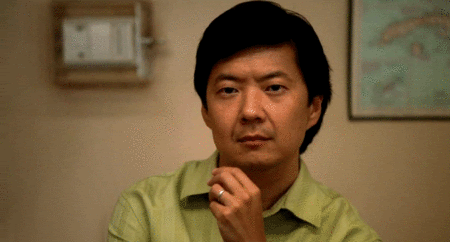By Cheryl Steinberg
Taking other people’s inventory, you know you do it. Or you have done it in the past. Probably early on in your recovery as well as on days that you were perhaps not feeling so spiritual. But, you’ve been warned against doing it; you know better. And you know that it doesn’t feel too good when someone butts into your program, either.
The problem with concerning yourself with other people’s programs is that it allows you to take the focus off of yourself but, that’s what a 12 step program is all about: becoming self-aware and taking responsibility for your own thoughts, feelings, and actions.
It’s said that those who find fault with others and their programs, calling them “sick” and whatnot, are probably pretty sick, themselves. And getting called out for their sober-shaming (I just came up with that)…well, that generally sends the offender over the edge. And you know why? Because they know the implications of such an accusation: they’re not spiritually-fit; they’re sick; they’re being judgmental; they’re not showing unconditional love for their fellow alcoholic/addict and so on. These are things we in the program are trying to avoid and outgrow, from our days spent in active addiction, when we were the most selfish and self-centered we’ve ever been.
If you find yourself being ‘down with OPP’ it’s important that you call yourself out on it. I don’t think it’s overly-dramatic to say that your sobriety – and therefore your life – depends on it.
Taking other people’s inventory leads to developing resentments. And these resentments can spread like wildfire. Soon enough, it’s not just some ‘rando’ at your meeting that you can’t stand for their hypocrisy; it’s your friends and even your sponsor, and eventually, the program, itself. As you can see, this is very dangerous territory.
The next time you find yourself becoming overly-concerned what someone else is doing, that’s a red flag that you need to take a good look at yourself. There’s something called projection, or transference, and what that means is that you see something in someone else that, in fact, applies to YOU, and you don’t like it. Not one bit.
Instead of condemning that other person, whether in your head or aloud to others, take some time to be with yourself. Journal about it. Talk about it with your sober supports and your sponsor. Take action to get back on track: meditate, pray, get involved with service. Re-commit to your program. Maybe begin the steps over again, if you’ve already completed them.
Remember, being judgmental from time-to-time is a human trait; it’s natural and normal. But, for those of us in recovery, allowing ourselves to get carried away with passing judgment on others that could spell Trouble (that’s right, with a capital ‘T’)!
Also remember: everyone is on their personal journey toward recovery from a very serious and life-threatening disease and each path may look different from your own. The next time you perceive someone to be ‘off’ or struggling, reach out your hand instead of condemning them for being a bad person.
Are you struggling with recovery? Have you relapsed and looking for a way back to sobriety? Talking to your sober supports, including your sponsor is a good place to start. You can also talk to an Addiction Specialist 24/7 by calling toll-free 1-800-951-6135. We are here to listen and help. You are not alone.
